#vocab post
Explore tagged Tumblr posts
Text










Happy Pride! Now that Lunar Boy (our middle grade graphic novel) is out, we wanted to share our thought process behind queer vocabulary in media. The constant censorship, imposed western biases on queer culture, and what it means to introduce queer vocabulary to a young audience.
Check out Lunar Boy wherever american graphic novels are sold, or check it out at a library!
#pride month#pride#queer#trans#lgbt books#qpoc#queer books#lunar boy#graphic novel#my art#longish post#just in case it needs to be said: of course it's okay not to identify with “queer” for any personal reason! but in talking about media rep#it's important to discuss the potential biases that could be imposed if we reject queer vocab all together#and the limitations the lgbtqia acronym has in encompassing identities outside of a western framework
1K notes
·
View notes
Text
Did you know that the english word “star” and the japanese word 星(ほし)don’t actually mean the same thing?
Language does not simply name pre-existing categories; categories do not exist in 'the world'
— Daniel Chandler, Semiotics for Beginners
I read this quote a few years ago, but I don’t think I truly understood it until one day, when I was looking at the wikipedia article for “star” and I thought to check the Japanese article, see if I could get some Japanese reading practice in. I was surprised to find that the article was not titled 「星」, but 「恒星」, a word I’d never seen before. I’d always learnt that 星 was the direct translation for “star” (I knew the japanese also contained meanings the english didn’t, like “dot” or “bullseye”, but I thought these were just auxiliary definitions in addition to the direct translation of “star” as in "a celestial body made of hydrogen and helium plasma").
To try and clear things up for myself, I searched japanese wikipedia for 星. It was a disambiguation page, with the main links pointing to the articles for 天体 (astronomical object) and スター(記号)(star symbol). There was no article just called 「星」.
It’s an easy difference to miss, because in everyday conversation, 星 and star are equivalent. They both describe the shining lights in the night sky. They both describe this symbol: ★. They even both describe those enormous celestial objects made of plasma.

But they are different - different enough to not share a wikipedia article. 星 is used to describe any kind of celestial body, especially if it appears shiny and bright in the night sky. “Star” can be used this way too (like Venus being called the “morning star”), but it’s generally considered inaccurate to use the word like this, whereas there is no such inaccuracy with 星. You can say “oh that’s not actually a star, it’s a planet”, but you CAN’T say 「実はそれは星ではなく惑星だよ」 (TL: that’s not actually a hoshi, it’s a planet). A planet IS a 星.
星 is a very common word, essentially equivalent to “star”, but its meaning is closer to “celestial body”. I haven’t looked into the etymology/history but it’s almost like both english and japanese started out with a simple, common word for the lights in the sky - star/星 , but as we found out more about what these lights actually were, english doubled down on using the common word for the specific scientific concept, while japanese kept the common word generic and instead came up with a new word for the more specific concept. If this is actually what happened, I’d guess that kanji probably had something to do with it - 星 as a component kanji exists inside the word for planet, 惑星, and in the word for comet, 彗星, and in the scientific word for “star”, 恒星, so it makes sense that it would indicate a more general concept when used standalone.
This discovery helped me understand that quote - categories don’t exist in the world, we are the ones who create them. I thought that the concept of “star” was something that would be consistent across all languages, but it’s not, because the concept of “star” is not pre-existing. Each language had to decide how to name each of those similar star-like concepts (the ★ symbol, hot balls of gas, twinkling lights in the sky, planets, comets, etc), and obviously not every language is going to group those concepts under the same words with the same nuance.
Knowing this, one might be tempted to say that 恒星(こうせい) is the direct translation for “star”. But this isn’t true either. In most of the contexts that the word “star” is used in english, the equivalent japanese will be simply 星. Despite the meanings not lining up exactly, 星 will still be the best translation for “star” most of the time. This is the art of translation - knowing when the particulars are less important than the vibe or feel of a word. For any word, there will never be an exact perfect translation with all the same nuances and meanings. Translation is about finding the best solution to an unsolvable problem. That's why I love it.
#translation#japanese#japanese language#learning japanese#language#langblr#language learning#semiotics#linguistics#japanese vocab#jimmy blogthong#official blog post
366 notes
·
View notes
Text
Sorry not to be a camera nerd but in IWTV S2 ep2, 3 and 4 Louis in Paris having a Rolleiflex and a Leica specifically for Armand is so significant to me!!! Two cameras used at the same point in time but not by the same people.
First the Rolleiflex.

For the the Rolleiflex to work- you have to take a lil bow before your subject. This is because the viewing mirror is on top of the camera's body, so to see what the lens sees you have to incline. A lot a photographers said utilising this camera is also showing humility in front of the subject specially in street style photography (Robert Doisneau said that the Rolleiflex is like gathering images and the Leica like hunting for them, he also was convinced that the Rolleiflex was an "ethic of life and art" not betraying the subject you are trying to capture). You have to take your time and bow before them. (showing also the fact that louis struggles with not admiring humans )


Now the Leica

The Leica on the other hand put you on the same level as the model. The mirror is in a more traditional position at eye level. And is more favoured for fleeting subject, at least one street photographer as describe the Leica's style of photo as "hunting" for faces capturing the moment ( i think it's Janine Niépce or Henri Cartier-Bresson but don't quote me on this). It's really interesting that he photographs Armand with it , capture the fleeting aspect of his nature ,he is being hunted or they are hunting together ,and they are equals in Louis's eyes.



The style of photo he is taking in ep 4 is called "Humanist photography".
The mouvement in France was criticised for being a postcard image of paris, cliché, naïve and not political enough. And giving a romantic image of Paris after the tragédie of the WW2. It focuses mainly on people, often doing daily mondain activities, Humanist photography really liked cafés and bars. The paradox was despite the cliché exterior a lot of pictures were of working class people (we can see that in the pics he gives to Daniel in ep 2, louis has a very similar choice of subject mater and view of the world, taking portraits of his working class lovers and of Parisians in restaurants). The goal was to heal post war Paris and to show a new beginning. (echoing louis owns personal struggles of finding his new self and a new lover in paris, but also the rose tinted glasses he has on this time has a tourist)
Also in post war paris this is sososos significant in the history of photographie hahhahha my nerd heart is dying....
#outing myself as a IWTV fan#the theme analysis could be pushed further but it's a nice detail i wanted to point out and this post is already too long#also it is very technical vocab heavy for me. i hope it s understandable for non french speakers and non film student#filmposting#interview with the vampire#iwtv#amc iwtv#louis de pointe du lac#photoraphy#IWTV#putting my degree to a noble cause#rent#art history#technobabble
98 notes
·
View notes
Text
im being so serious btw if any of you have links to an influencer speaking exactly like Madam E, please send them. cus atm, this is living rent-free, as they say. my roman empire
#tmagp#tmagp s1#tmagp spoilers#tmagp16#the magnus protocol#and for the people only reading this post and not the previous:#i do mean near -exact- because what's eating at me is not the quality but the quantity#well ok and also a bit the quality but i watch people who use all this vocab. just not in this way
169 notes
·
View notes
Text
小红书 Vocab
小红书 (also referred to as xiaohongshu or XHS) is a Chinese image-based social media platform. It is a combination of the feed, likes, shopping, and video aspects of instagram, with the ~aesthetics~ and majority female audience of pintrest. I've grown really fond of it and found that it's algorithm is better than instagram and MUCH better than pintrest with giving me content I enjoy.
I'm going to offer some vocab that is either unique to the platform, or slang that is found on the platform (esp in bullet comments). I don't want this to be too long, so some terms may be omitted if they are found on many other social media apps
APP 小红书: Literally "Little Red Book". Probably a play off of Chairman Mao's book of speeches and writings which is also referred to as the Little Red Book. The app is not at all political, but more so trying to evoke the "essentiality" and "knowledge" aspect of the term. 笔记: Notes. XHS's name for its posts 收藏: Favorites. Separate from likes, these are bookmarked collections. This and Likes can be hidden 赞过: Likes. Notes that you "heart" will appear here. 关注: Notes from people you follow 发现: Discovery tab 附近: Recent notes
CONTENT 直播: Live-Streams 美甲: Nail Art 穿搭: Style 美食: Food 发型: Hairstyling 头像: Avatars/Profile Pictures 动漫: Animation and Comics 彩妆: Makeup 壁纸: Wallpapers 绘画: Drawing/Art 护肤: Skincare 影视: Film/TV 游行: Travel 减肥: Weight Loss 家居: Home 家装: Interior Design 学习: Studying 读书: Reading 情感: Romance 攝影: Photography 手工: Crafts 文化: Culture 游戏: Video Games 音乐: Music 舞蹈: Dance 搞笑: Comedy 明星: Stars 文具手: Stationary 校园生活: School Life 心里: Psychology 科学科普: Science 艺术: Art 社科: Social Sciences 萌龙: Cute 综艺: Variety 箱包: Handbags 潮鞋: Sneakers 健体塑型: Bodybuilding 职场: Office 婚礼: Wedding 汽车: Automobiles 潮玩手办: Collectable Figures 母婴: Parenting 机车: Motorbikes 户外: Outdoors 运动: Sports 露营: Camping COMMENTS (Things you'll see in tags/descriptions/bullet comments) PLOG: Picture blog. Usually like a blog, but with photos/photo collage (also sometimes vlogs get this tag even though they're videos) 爱自己的100种方式: Originally from a feature on Douyin that would give a "treat yourself" style prompt if you comment this phrase 泰酷辣: Cool. Took off from this meme. “太酷啦” 上岸: Similar to "Goals". Usually posted to applaud an achievement/amazing life experience 巨: Super. Usually used in describing really tasty food “巨巨巨好吃” cos: Cosplay emo: The original meaning—emotional. More often used to mean a depressed mood than the style/subculture 磕: to ship a couple (cp) For the Lesbians t: Tomboy/masc lesbian (Sub-types include 铁t,奶t,娘t, 爷t, 长发t, 短发t) p: Femme lesbian (p said to come from "Pretty girl" or “婆”) h: neither femme nor masc/futch le/les/啦啦: Lesbian 双女主: F/F couple (IRL or in fiction) 淘淘乐/TTL:T/T relationship 泡泡龙/PPL: P/P relationship 黄鹤楼HI: H/H relationship TPL: T/P relationship 🐟: Ultra passive bottoms
#小红书#xiao hong shu#XHS#vocab#langblr#resource#xhs gives me more gay content than insta hhhh#long post
533 notes
·
View notes
Text


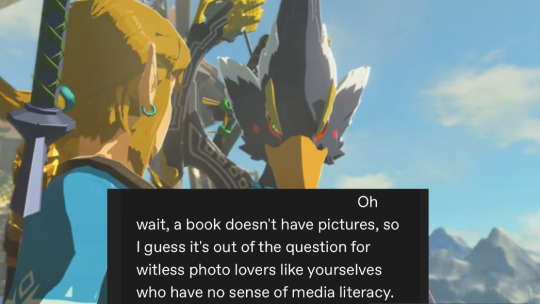
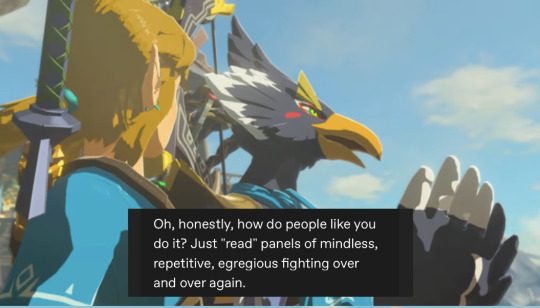


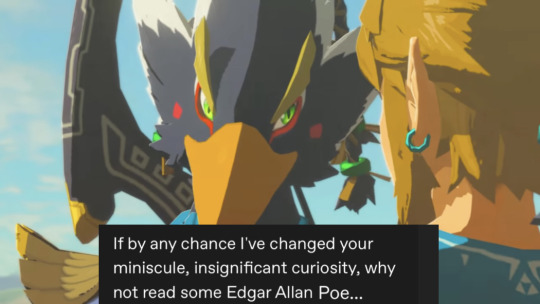
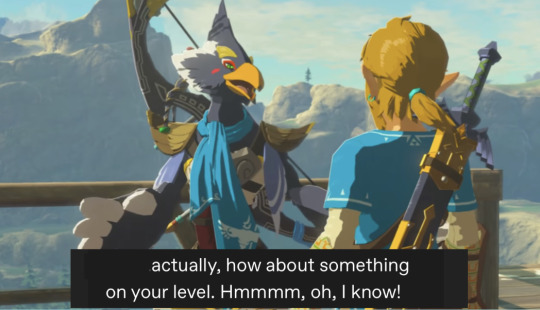

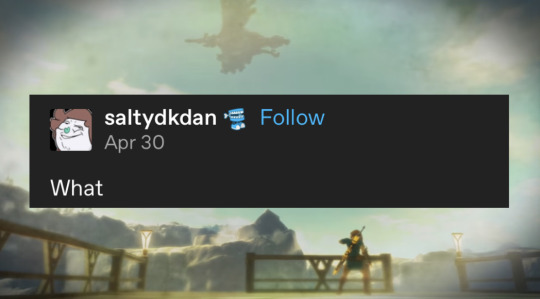
hello revalink nation 💖
#june speaks#revalink#loz#botw#i read that original post and IMMEDIATELY read it in revali’s voice#my favorite part is how the anon is trying so hard to sound pretentious but keeps fucking up vocab and grammar anyways#like ‘‘pick up some real literacy’’ you mean literature??? ‘‘i endear your low attention spans’’ THATS NOT HOW YOU USE THAT WORD LMAO
526 notes
·
View notes
Text
got my shit rocked during longsword sparring and moved into a new apartment in the same day. oh for a loyal and generous squire to prepare me for bed and suck me off and dress my wounds and so forth 🙄🙄
#but for real. when ur opponent goes for a rising volta stabile into your neck but hits your unarmored shoulder bone instead 😬#not even bruised it’s just red . fencing is stupid!!!!!!!!!!!!!!!!#my post#*risinf mezzano with a volta stabile of the feet. in case any he/ma ppl are catching my poor fencing vocab#getting exposed as a fior/e dickrider
39 notes
·
View notes
Text
🌊 wavecrest-confessions Follow
whenever I see someone making fun of the tidelords disappearance I get SO angry. Its just so insensitive to water dragons, and it ALWAYS comes from a wind, earth, or ice dragon. Like I don’t think you have any ground to stand on guys, your deities are still more neglectful than the tidelord and he’s not even here
❄️ ice-ice-baby Follow
Dude your god has been gone for so long his long lost children came back before him
🪨 freshpebble-deactivated
Aren’t you the one who carved your fanart of femboy Icewarden into the side of the pillar.
❄️ ice-ice-baby Follow
???? You’re literally a shade apologist
💫 see-the-stars Follow
HOW ARE THERE SHADE APOLOGISTS ON DRUMBLR IN THIS DAY AND AGE I THOUGHT THEY WERE ONLY ON DRITTER
🍃 riding-high Follow
are we gonna just brush over the femboy icewarden thing
🦅 talonafan2477 Follow
@ see-the-stars the Arcanist is the ORIGINAL shade apologist what are you talking about
🦅 talonafan2477 Follow
btw “ice ice baby” is apart of from clan froststep that has a history of supporting the gaolers during the freezeflash war and thus the destruction of the banescales
🌑 walkingshadows Follow
Yeah but what about the femboy icewarden thing
🔥 its-gettin-hot Follow
you can excuse genocide but draw the line at femboy icewarden?
🌑 walkingshadows Follow
im not drawing the line i just wanna see it myself
🌺 bug-claws Follow
thats fair
#flight rising#fr#unreality#unreality tw#fake post#tw femboy#????#I PROMISE that i didnt mean to use it in like?? a transmisogynistic way I have only ever heard it used to refer to like#a guy (whether cis or not) who dresses in a feminine way and like… a term exaggerated by the internet?#please dont take this as me trying to like say that its NOT a derogatory term and that I was just ill informed but I dont really know#what else to do about it at this point#and my real intention here was to emulate irl tumblr posts and I fully understand that even using it in a comedic factor doesn’t excuse#the usage of a derogatory term but I don’t use that word in my normal vocab?#idk im sorry if this sounds bad long story short I’ve never seen it used in that way but I acknowledge that I could just be uninformed
680 notes
·
View notes
Text
Its not that the batteries are meant to represent yellows intelligence In any way to be honest i think its more akin to constant fatigue and having a disability that hinders how well your thoughts and words come out more than anything. Hes always been a smart boy. having trouble with words or expressing his thoughts doesn't make him any less smarter than he is!!!
#puppet talk#dhmis#on the other hand immediately having an extensive vocab doesn't make you smart either if your not using those words in a meaningful way#← e.g conservatives#saying this as a person who struggles with words and writing so so often it takes days for me to say what i wanna say and even then the-#-words dont always come out right. very important context!!!#just to clarify for anyone . if you called him smart yellow before i dont think its bad at all if this post comes off like it is!!#its just a matter of knowing and changing and understanding. yknwo? some times we just dont know things and thats absolutely fine
492 notes
·
View notes
Text
today's vocab

nouns:
下戸(げこ) = non-drinker
矛先(ほこさき) = focus (of attack, criticism, etc.), target
性癖(せいへき) = disposition, inclination, propensity
口封じ(くちふうじ) = preventing someone from revealing something; killing someone to prevent them from revealing something (slang)
ダンマリ = being taciturn, keeping silent; giving no notice/warning
幽閉(ゆうへい) = confinement, imprisonment
上流階級(じょうりゅうかいきゅう) = upper class, the elite
殺気(さっき) = bloodlust
餌食(えじき) = prey, victim (incl. metaphorical)
命拾い(いのちびろい) = narrow escape from death
様子見(ようすみ) = wait-and-see (e.g., situation)
verbs:
咎める(とがめる) = to blame, censure, criticize
乗っ取る(のっとる) = to take over, seize, commandeer
adjectives:
はかない = fleeting, transient; empty, faint (e.g., possibility)
天下(てんか)の = peerless, incomparable
adverbs/onomatopoeiae:
ズバリと = decisively, boldly, once and for all
expressions:
真(ま)に受ける(うける) = to take seriously, take someone at their word
胸糞(むなくそ)が悪い(わるい) = disgusting, sickening
〜の端くれ(はしくれ) = a mere 〜 such as i (e.g., role, job)
#all the vocab i post lately is super dramatic from the manga i'm reading lol#japanese#日本語#langblr#vocab#sasha.txt
42 notes
·
View notes
Text
It feels extremely silly that only today did I realize that pantry and panadería are slightly similar-sounding for a reason >_>
(The English word pantry is one of the many, many common modern English words derived from Anglo-French: in this case, panetrie, from Old French paneterie, "bread room" ... Spanish panadería also has a complex etymology, but all are related to Latin panis, "bread.")
#anghraine babbles#deep blogging#linguistic stuff#saw a post that was very aggressively going on about how english is GERMANIC (true) and has germanic words in it too!!! (duh)#and the whole discussion ended up arguing that the existence of common germanic words means the many common latinate ones don't count#as 'true english' or whatever and also all languages have borrowings on the level of french-derived vocab in english (not true!)#and it's only lexical and the english grammar is still fundamentally what it was (not true at all actually though not mainly bc of french)#like. sorry that the existence of 'cat' in english implies to you that 'animal' is not a real english word!#don't know why the entirely true statement that 'english is fundamentally germanic' always seems to devolve into nativist bullshit#but damn does it ever.#people are fixated on the vastly oversimplified 'french derived = elitist prestige register from foreigners; germanic = common real speech'#in reality normal everyday english chatter constantly and necessarily includes plenty of french-derived words (often unrecognized)#like pantry! the longer any english document or speech goes without any french- or latin-based words#the more ridiculously and artificially childish it sounds#esp given that some /ultimately/ germanic words in english came into it not from old english but via medieval or anglo-french#often taken from old norse. so 'germanic' real talk from real folk vs dastardly french corruption can be even more complicated#than the obvious xenophobic nonsense motivating the whole anglish thing#even my guy (and known old english lover & french hater) jrr tolkien could only /minimize/ the french-based vocab in lotr#if he'd gotten rid of it altogether he'd sound like he was writing for four-year-olds#english#anglish hate blog#okay for the tags:#anghraine rants
42 notes
·
View notes
Text
Utena Fansub Ep 15 release + Japanese vocab highlights

Last episode release I did a lot of textual analysis, because that was the most interesting part of the episode by far. This time, the episode was packed with interesting Japanese vocab, so I'll be focusing on that today!
ミルクセーキ作ったけど… 飲む?
I made some milk with honey. Want any?
If you’ve been following me since before the Utena fansub project, you’ll know that I sometimes post about what I call Trap Words in Japanese — loanwords that a typical English speaker might read and think “oh, thats a katakana-ised version of X” and be completely wrong about! For example, コンセント (konsento) is not “consent” but “power outlet/socket” (coming from a katakana conversion and then abbreviation of “concentric plug”). This is a mini trap words post!
I lied in this line. He didn’t make milk and honey. He made ミルクセーキ (mirukusēki). What is mirukusēki? A typical J→E dictionary would translate it as… Milkshake. But what a Japanese person imagines when they hear ミルクセーキ and what an English speaker imagines when they hear “milkshake” are COMPLETELY different.
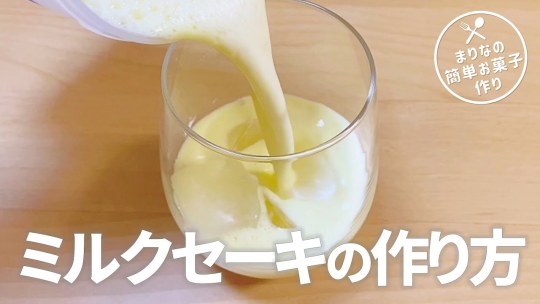


I think of it like the word アニメ (anime). What does the Japanese word アニメ mean? It means “cartoon”. To a Japanese person, Tom and Jerry is アニメ. What does the English word “anime” mean? It means a specific style and genre of specifically Japanese animation. To an English speaker, Tom and Jerry is not anime. アニメ and “anime” are two different words with different meanings, despite sharing some history and sharing the same romanised form, because they are words in two different languages.
ミルクセーキ (mirukusēki) is a loanword from English which comes from “milkshake”, just like アニメ comes from “animation”. But a ミルクセーキ is not a milkshake. A ミルクセーキ usually contains eggs like an eggnog, it usually does not contain ice cream but instead crushed ice (thus being much less viscous), it’s seen as more of an after dinner nightcap type drink (similar to milk and honey!!) while the English “milkshake” is seen as a lunchtime drink usually accompanying fast food.
The Japanese wikipedia article for ミルクセーキ mentions that there are two types. One is “french style” which is the one Miki makes and the only thing that comes up if you put ミルクセーキ into google images. The other is “american style” and the reason it doesn’t come up on google images is because it’s much more often referred to as シェーキ (shēki) which when said aloud sounds much closer to “shake” than “sēki”. So the real translation for “milkshake” is シェーキ. What does that mean for ミルクセーキ ? Well, it’s its own thing! It’s a Japanese drink called mirukusēki that happens to be confusingly named after the English “milkshake”.
Anyway. I decided to translate this as “milk and honey” because that was the most appropriate term I could think of that they might drink in bed, presumably to help them sleep. Also the consistency and colour of the drink in the show looks kind of like milk and honey.

Miki: ちゅうちゅうってかわいいですね! Utena: ちゅうちゅうじゃなくて、チュチュだよ。ちゅうちゅうじゃまるでねずみじゃないか?
Miki: Choo-Choo is so cute, isn't he? Utena: It’s not Choo-Choo, it’s Chuchu. Choo-Choo makes him sound like a train.
This line was also a lie! Utena actually says “mouse” not “train”. チューチュー (chūchū — note the long vowel ū) is the Japanese onomatopoeia for a mouse squeaking (which you may know from Pokemon — Pikachu’s name comes from the sound of a sparkle, pika, and the sound of a mouse, chū). Utena’s actually pointing out that Chuchu is not quite a mouse, not quite a monkey.
The option most translators would opt for in this situation would be to translate directly and keep the “mouse” bit. But since this translation project prioritises natural language, I chose to make the comparison work with an English onomatopoeia. I want the audience to think “huh that was weird, I guess it was hard to translate that line” as LITTLE as possible!

んんー、ああ。君にも迷惑かけたな。実は迷惑ついでにちょっと相談があるんだミッキー。
Oh, fine. Sorry for worrying you. By the way, I had something I wanted to talk to you about. (note lack of green)
A more literal translation would be:
Oh fine. I worried you, didn’t I? Speaking of taking up your time, I had something I wanted to talk to you about.
迷惑 (meiwaku) is the sticky part of this translation. The Japanese concept of 迷惑 is quite strange to most English speakers. Here are some examples of when you might experience 迷惑:
When someone’s late and you need to wait for them.
When you’re going somewhere and someone sees you and pulls you aside into a conversation.
When you go to use a public toilet and the seat has piss on it.
Here are some examples that aren’t really 迷惑, but it’s polite to say that they are:
When you get hurt - apologise for causing 迷惑 to people who worried about you.
When someone does something nice for you - apologising for causing 迷惑 implies that they spent a lot of time for your benefit and you appreciate that.
I guess a good definition of 迷惑 would be “when someone’s actions cause someone else to lose time, money, or cause them to become upset.” But we don’t have a word for that in English that sounds right in this kind of context! There’s no word that can mean both “worrying someone due to a having a fall” and “taking up their time on the way to class”. So although the teacher says “speaking of 迷惑”, I just had to skip that part because I couldn’t work it in. I couldn’t make the two concepts connected enough for it to sound natural.

Thank you to my amazing editor @dontbe-lasanya for their great work as always!
Make sure to follow the blog if you want to see more posts like this, or if you just want to follow along with the fansub releases! To see all episodes released so far, go here:
Rose divider taken from this post
#langblr#japanese language#japanese#language learning#learning japanese#japanese vocab#translation#language#revolutionary girl utena#rgu#shoujo kakumei utena#sku#utena#utena fansub#official blog post
39 notes
·
View notes
Text
Round 2 - Arthropoda - Pauropoda




(Sources - 1, 2, 3, 4)
Pauropoda is a class of small, pale, millipede-like arthropods. They are composed of two orders: the Hexamerocerata with eleven pairs of legs and telescopic antennae and the Tetramerocerata with eight to ten pairs of legs and short, non-telescopic antennae.
Pauropods live in soil and leaf litter worldwide, feeding on mold, fungi, and occasionally the root hairs of plants. They are small, soft-bodied animals, only 0.3 to 2 mm in length. They do not have eyes, though they do have sensory organs which detect light. Long, sensory hairs called trichobothria are located throughout their body segments. Their anal plate is distinctive, helping distinguish between species.
Like centipedes, pauropods do not mate directly. Males place a sperm packet on the ground for females to find. Females deposit the fertilized eggs on the ground and subsequently abandon them. Tetrameroceratans hatch with three pairs of legs and Hexameroceratans with six, adding a new segment after each molt in a process called anamorphosis. Pauropods will continue molting even after their adult number of segments is reached, without adding any further segments or legs.

Propaganda under the cut:
Gif comes from this video. Look at him sniffin around!
The first pauropod discovered was found by Lord Avebury in his own garden in London in 1866. He wrote of the creature: “Pauropus huxleyi is a bustling, active, neat and cleanly creature. It has, too, a look of cheerful intelligence, which forms a great contrast to the dull stupidity of the Diplopods, or the melancholy ferocity of most Chilopods.” (Which, kinda rude, but y’know)
Only one fossil species is known, Eopauropus balticus, which was found in mid-Eocene Baltic amber.
#trying to shorten these descriptions more but it helps that most of their anatomy should already be familiar from the centipede and#millipede posts#should we have a vocab quiz I feel like I’ve had to type anamorphosis an insane amount of times#round 2#animal polls#arthropoda
36 notes
·
View notes
Photo
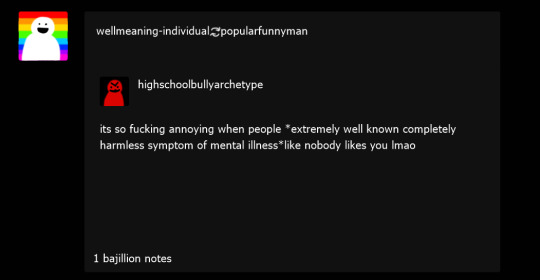
you guys gotta think critically abt posts you reblog im getting so sick of this shit
#this is abt that post making fun of people randomly using big vocab words#as if that is not like. THE autism symptom#pic
923 notes
·
View notes
Text
as a man who has not only never read or interacted with the dc universe and has only had their partner ramble jason todd lore to them like. once or twice.i should not have the idea of a percy jackson/justice league crossover stuck in my head this hard.
trying to imagine the cabin counselors sitting in on meetings and absolutely causing havoc. falling over in their chairs, giving wonderful ideas like "kill that loser! throw a hairbrush at em!" about literally EVERY villain and trying to organize a capture the flag game with the JL vs CHB and/or CJ is hilarious to me
i would also love a jason todd/grace meet up. because the sillies.
#i was a nerd in the back of the class rambling about books and lore WAY above my grade level (i read mistborn at fucking 10???) who let me??#and then proceeded to have every attempt at a hint reference from teachers fly straight over my head#for context/an example#a teacher once tried to prompt me with a vocab word by referencing batman.#i remember this vividly because my valiant response of “I never watched that movie!” had the whole class gasping and clutching their pearls#pjo#hoo#jason grace#heroes of olympus#dc universe#am i allowed to tag that#damnit i need to actually read these motherfucking comics#dont i?#tw swearing#this is NOT my regular type of post#my posts are entirely jason grace. almost entirely.
19 notes
·
View notes
Text
Learning through immersion
(Specifically Spanish, for intermediate-advanced learners. Most of this can be used for any language though)
Consume native content without looking up anything. Just enjoy it. (Something written, or something which has a transcript/subtitles)
Now consume it a second time
Write down any interesting sentences. (Ideally with pen and paper, for it to stick)
Anything that has something that looks like a word you know, but is in a tense you’re not sure, just a new use of a tense, some interesting expression or vocab…
Go onto SpanishDict and type in those interesting conjunctions, figure out what tense they’re in
Learn that new tense! Either through SpanishDict (they have lessons for pretty much everything) or just google lessons online. This can be as in depth as you like, or you can just google a quick explanation
Create new vocab list of new words and quickly run through it
Re-consume native content after going through all your sentences with a new enlightened mind
On this run you can also read aloud (or mirror, if you have audio) the interesting sentences you wrote down. With feeling, please.
Then write something in your own words, using new grammar and vocab you’ve studied. Or speak aloud, and record yourself. You should try to write other sentences using a similar structure as whatever new interesting tense use you’ve found. If it suits you, get a native speaker to check your sentences, using Busuu, or HiNative, or something similar.
This is just one way that I’ve been enjoying recently. To be honest, you can cut out pretty much any of these steps depending on what suits you, how much time you have, etc.
The important thing is that you’re paying close attention to your content, and you absolutely need to write your own sentences afterwards.
Unless you genuinely have no interest in communicating with native speakers — maybe you just want to watch tv or read in your target language and that’s fine — but if you do want to be able to communicate, you’re going to need to practice. You should also be practicing speaking aloud. If you have nobody to talk to, talk to yourself.
This strategy is really useful for when you’ve self-studied the basics of a language and you don’t know what grammar you need to study next. Just let
#i hope this is coherent#btw I skip half these steps all the time#I do think it’s important to stumble through before looking things up tho#but you can do this by just…reading a paragraph in its entirity before googling whatever vocab and grammar#also this process doesn’t need to happen in one sitting#langblr#language#language learning#spanish#spanish langblr#learn spanish#linguistics#language tips#language resources#languages#spanish language#learning languages#language learning tips#how to learn Spanish#quinn posts#100
579 notes
·
View notes